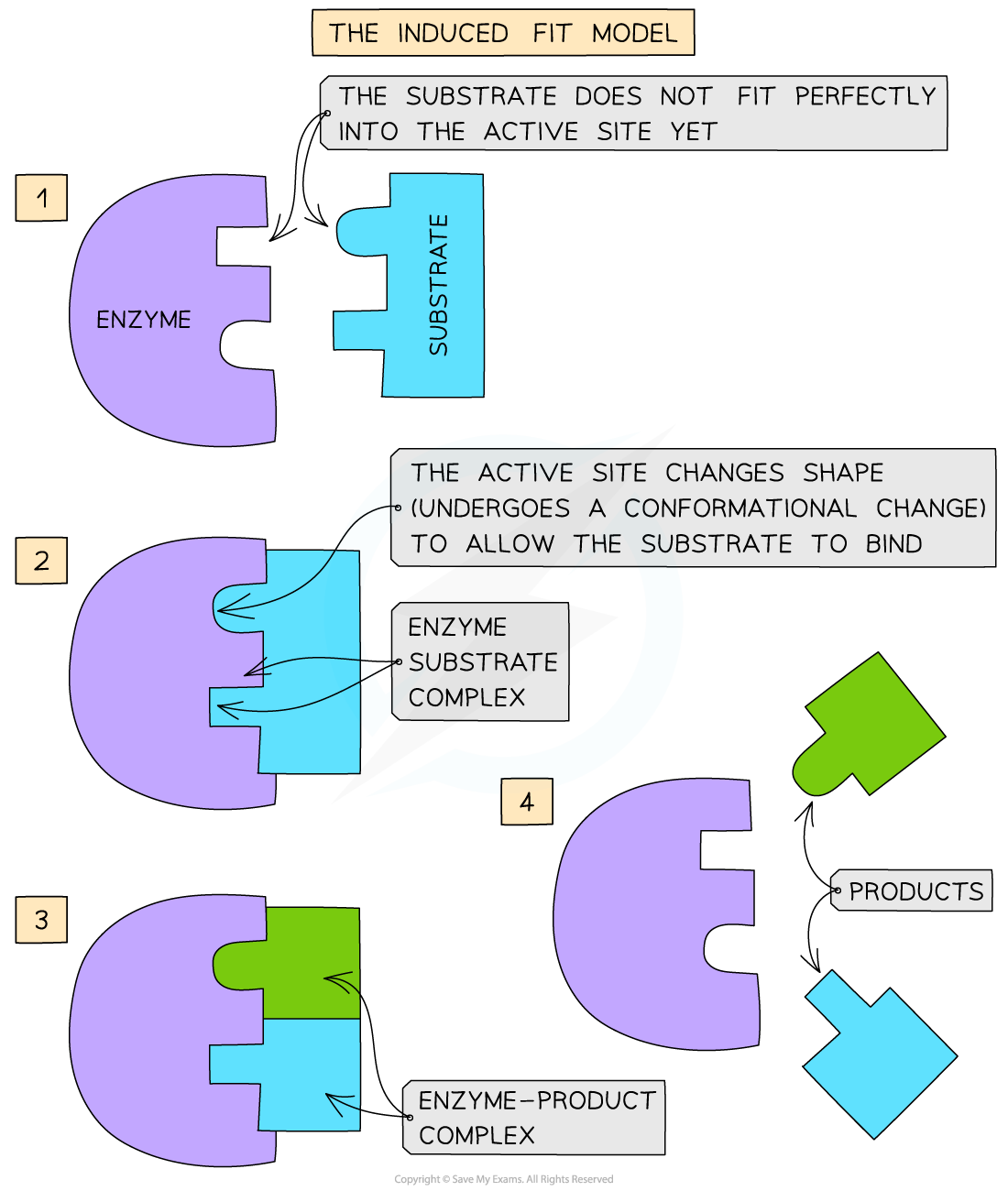How Enzymes Work (AQA A Level Biology) : Revision Note
How Enzymes Work
The lock-and-key hypothesis
Enzymes are globular proteins
This means their shape (as well as the shape of the active site of an enzyme) is determined by the complex tertiary structure of the protein that makes up the enzyme and is therefore highly specific
In the 1890’s the first model of enzyme activity was described by Emil Fischer:
He suggested that both enzymes and substrates were rigid structures that locked into each other very precisely, much like a key going into a lock
This is known as the ‘lock-and-key hypothesis’
This was later modified and adapted to our current understanding of enzyme activity, permitted by advances in techniques in the molecular sciences

The lock-and-key hypothesis
The induced-fit hypothesis
The modified model of enzyme activity is known as the ‘induced-fit hypothesis’
Although it is very similar to the lock and key hypothesis, in this model the enzyme and substrate interact with each other:
The enzyme and its active site (and sometimes the substrate) can change shape slightly as the substrate molecule enters the enzyme
These changes in shape are known as conformational changes
This ensures an ideal binding arrangement between the enzyme and substrate is achieved
This maximises the ability of the enzyme to catalyse the reaction

The induced-fit hypothesis
Examiner Tips and Tricks
Don't forget – our current understanding of enzyme-substrate interactions is based on the induced-fit hypothesis.

You've read 0 of your 5 free revision notes this week
Sign up now. It’s free!
Did this page help you?

